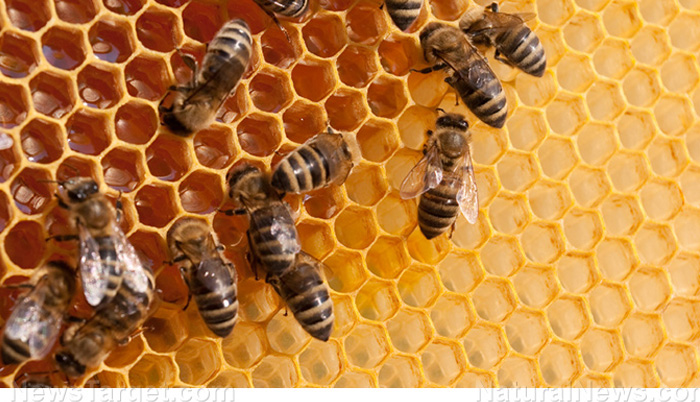![]() Home > Health
Home > Health
Probiotics Found To Protect Honey Bees From Toxic Effects Of Pesticides

![]() June 23rd, 2017 | 09:02 AM |
June 23rd, 2017 | 09:02 AM | ![]() 1356 views
1356 views
NATURALNEWS.COM
Probiotics — the live bacteria found inside your gut — can be the answer to saving mankind. According to a recent study from Lawson Health Research Institute and Western University, probiotics can protect honey bees from the fatal side effects of pesticides that people use to protect their crops.
Honey bees play an important role in agriculture because they are responsible for cross pollination. If not for them, no crop or tree will continue to exist. The eradication of honey bees on the face of the planet can be disastrous to mankind. Bees pollinate an estimated 35 percent of the global food crop. But with the incessant use of pesticides to maximize yields, there has been a decline in the population of these hardworking insects.
The common pesticides — neonicotinoid insecticides — are a major factor in killing honey bees. Pesticides are needed to eliminate unwanted pests, but while they can protect crops, neonicotinoid can have negative effects on bees. This can kill bees in two ways: direct contact wherein the affected bees immediately die and don’t return to the hive; and indirect contact, wherein a bee gets sprayed with insecticide and then returns to the hive, bringing with it the poison and killing everyone in the hive.
Honey bee mortality has been steadily increasing from 38 to 58 percent in recent years. This is two to three times higher than the sustainable level.
To discover ways to protect honey bees, researchers used fruit flies to analyze pesticide toxicity since both have similar immune systems and share common microbes. They discovered that fruit flies were more susceptible to infections. They were exposed to a comparable amount of pesticide as the honey bees in the field.
They then applied a specific strain of probiotic lactobacilli and saw that the survival rate for fruit flies exposed to the pesticide improved. “Our study showed that probiotic lactobacilli can improve immunity and potentially help honey bees to live longer after exposure to pesticides,” said Brendan Daisley, a trainee in the laboratory of Dr. Gregor Ried, Director for the Canadian Centre for Human Microbiome and Probiotic Research at Lawson.
Similarly, a study published in Scientific Reports showed that exposure to insecticides affect honey bees’ ability to fly.
“Our results provide the first demonstration that field-realistic exposure to this pesticide alone, in otherwise healthy colonies, can alter the ability of bees to fly, specifically impairing flight distance, duration, and velocity,” said Simone Tosi, University of California, San Diego postdoctoral researcher.
Flying is a skill necessary for a bee as this allows it to pollinate. According to the study, long-term exposure to the pesticide over one to two days diminished the affected bees’ ability to fly. Short-term exposure increased their activity levels briefly. The bees also flew farther but, based on other studies, they do so more erratically. Bees that fly more erratically are less likely to return home.
If honey bees are killed by exposure to such insecticide, they won’t be able to carry out their roles, which are vital to the ecosystem. They are basically responsible for the global pollination of crops and native plants. A decline in their population can have tremendous impact on the environment.
“The demise of honey bees would be disastrous for humankind. A current dilemma in agriculture is how to prevent bee decline while mitigating crop losses,” said Dr. Ried. “We wanted to see whether probiotics could counter the toxic effects of pesticides and improve honey bee survival.”
It might seem that the answer is easy: Stop the use of pesticide. It’s not that easy, however, because farmers need it to keep pests at bay. For now, probiotics seem to be the most effective protection for these creatures that help keep our ecosystems alive.
Source:
courtesy of NATURALNEWS
by Tim Wesley
If you have any stories or news that you would like to share with the global online community, please feel free to share it with us by contacting us directly at [email protected]